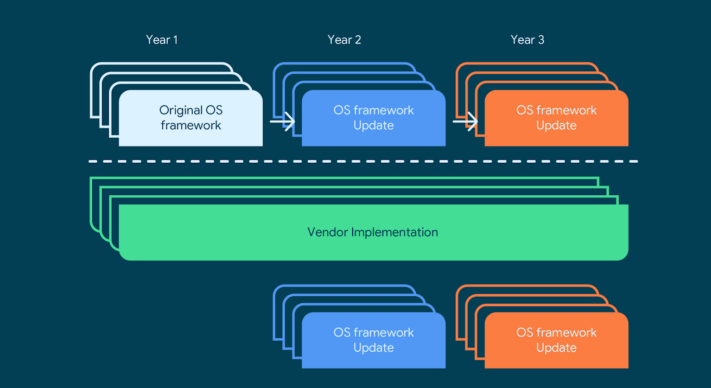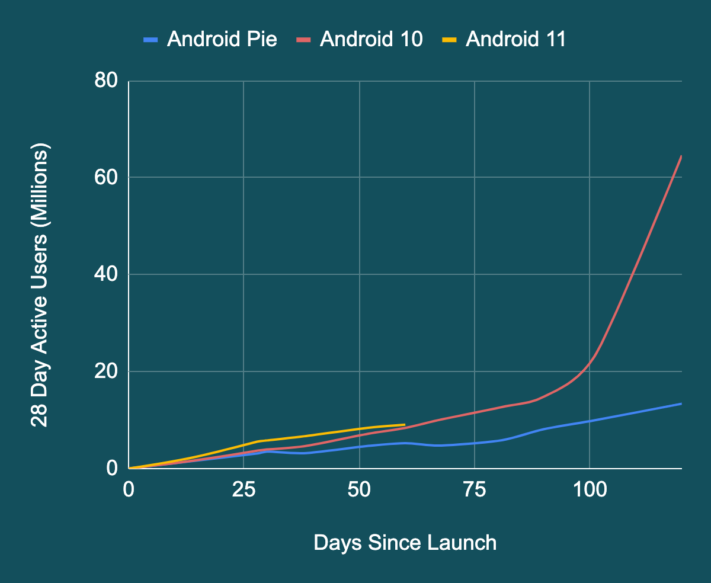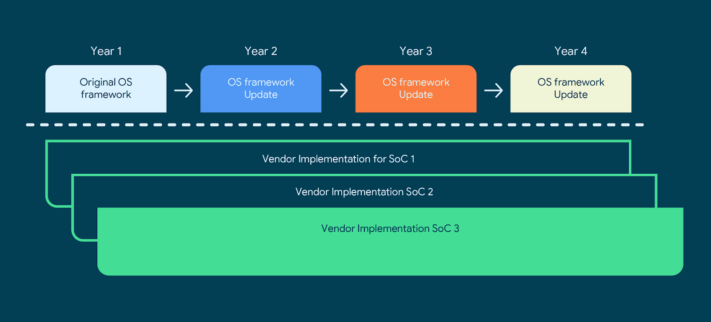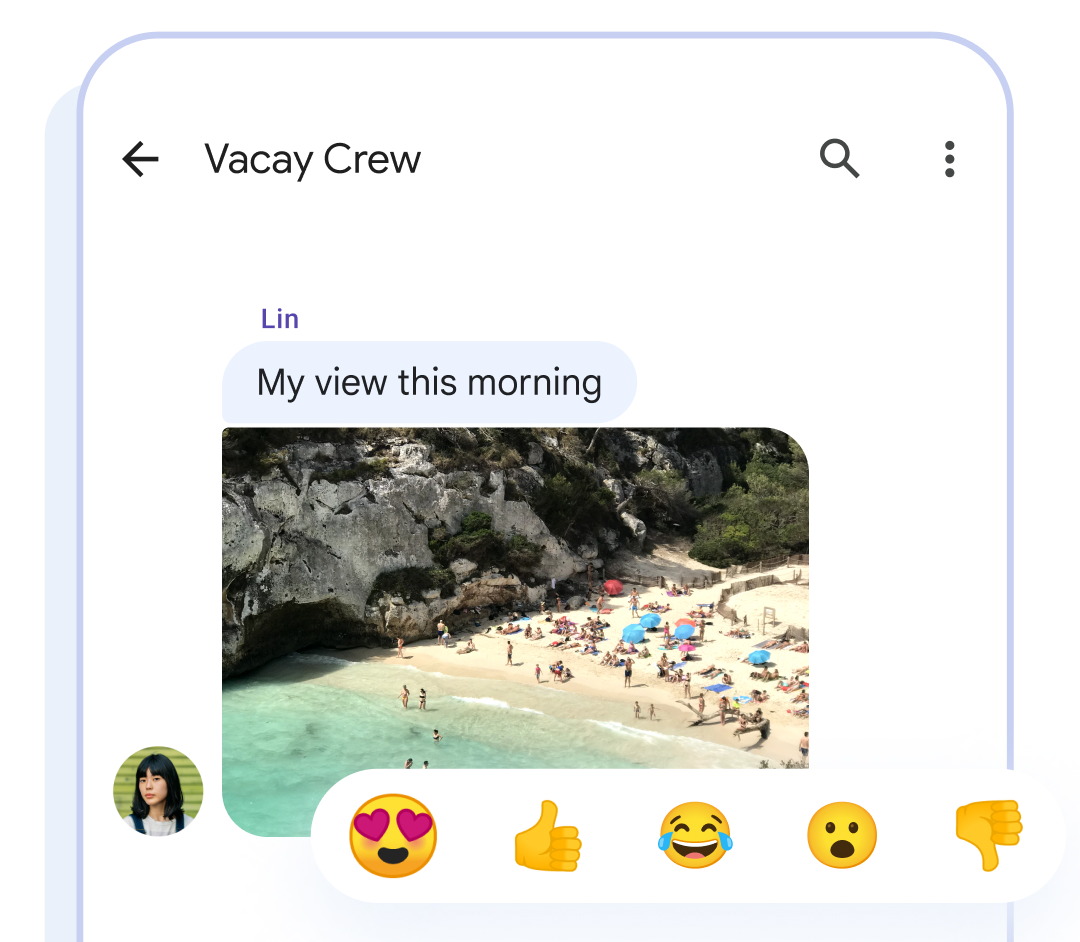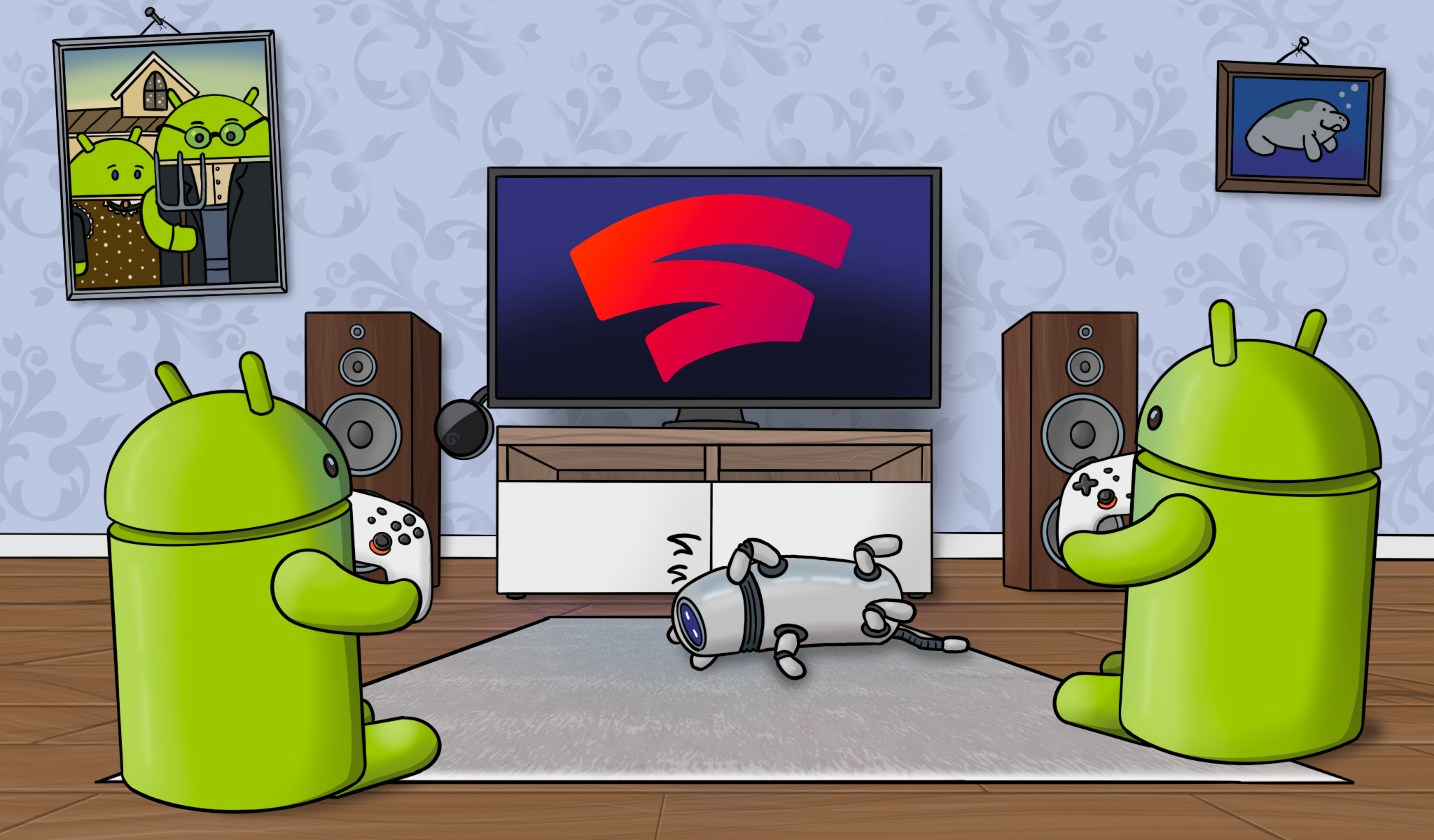I ett inlägg som idag publicerats av Google på Android Developers Blog framgår det att företaget utökat samarbetet med Qualcomm för att möjliggöra systemuppdateringar under fyra års tid för enheter som lanserats med Android 11, eller nyare systemversioner.
During the past year, we have been working hard to implement this solution. Building on our deep collaboration with our colleagues at Qualcomm, today we’re announcing the results of this work. Going forward, all new Qualcomm mobile platforms that take advantage of the no-retroactivity principle for SoCs will support 4 Android OS versions and 4 years of security updates. All Qualcomm customers will be able to take advantage of this stability to further lower both the costs of upgrades as well as launches and can now support their devices for longer periods of time.
Det utökade stödet, där tre OS-uppdateringar parallellt med fyra års säkerhetsuppdateringar ingår, omfattar även enheter som lanserats med Android 10 eller tidigare versioner under förutsättning att enheterna erhållit en uppdatering till Android 11. Google skriver samtidigt att det är valfritt för tillverkarna att dra nytta av det förbättrade stödet, varför inga garantier kan utfästas.
Googles Project Treble som introducerades tillsammans med Android 8.0 för att förenkla processen med systemuppdateringar har för varje ny Android-version förbättrats. Med detta har också uppdateringstakten blivit bättre bland tillverkarna, vilket Google illustrerar med grafen ovan, som visar att Android 10 rullat ut i betydligt högre takt än föregångaren. Ett mönster som tycks upprepas mellan Android 10 och Android 11.
För varje ny Android-version behöver tillverkarna utgå från Googles GSI, generic standard image, från vilken de i sin tur kan bygga på med med förändringar och tillägg (vendor implementation) via ett ramverk Google tillhandahåller (vendor framework). Tillverkarnas tillägg behöver sedan passera Googles VTS (vendor test suite) innan enheterna kan säljas eller uppdateras med en ny Android-version.
För Android 11 har Google i samarbete med Qualcomm infört ytterligare förändringar som gör det enklare och snabbare att uppdatera systemversioner. Särskilt fokus har lagts på att göra det möjligt att använda samma ramverk för olika chipp, vilket vidare reducerar komplexiteten och kostnaderna med att leverera uppdateringar för tillverkarnas räkning.
Project Treble was an ambitious re-architecture of Android that created a split between the OS framework and device-specific low-level software (called the vendor implementation) through a well-defined, stable vendor interface. As a part of this split, the Android OS framework guarantees backward compatibility with the vendor implementation, which is checked through a standardized compliance test suite – VTS. With each Android release, Project Treble publishes Generic System Images (GSIs) that are built from AOSP sources, and are guaranteed to be backwards-compatible with the previous 3 versions of vendor implementations, in addition of course to the current release—for a total span of four years. Devices launching with the new Android release must have vendor implementations compatible with that GSI. This is the primary vehicle for reducing fragmentation within the OS framework. While we allow and encourage our partners to modify the framework itself, the modifications post-Treble must be done in a way that reduces upgrade costs from one version to the next.


) 14
14